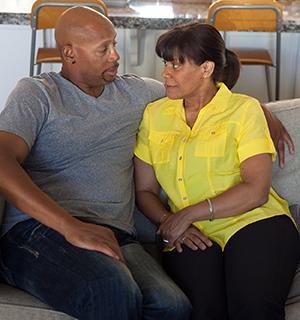Losing someone you care about is painful. Grief is the emotional reaction that follows. It’s a normal process. It has both physical and emotional signs. But even with major life changes, such as the loss of a spouse or parent, you can face the loss and move on.
Grief takes many forms
Each person will have their own grief process. Over time, grief should slowly help you adapt to the loss. These normal grief reactions are common:
-
Not wanting to believe the loss is real
-
Feeling emotional numbness or shock
-
Feeling annoyed or outright angry at the loved one who died
-
Thinking you could have done something to stop the loss
-
Feeling sad or hopeless
-
Loss of appetite and sleep
-
Loss of interest in things you used to enjoy
Normal grief often doesn't need to be treated. You'll slowly start feeling more adjusted to your new life. You will usually have adaptation within 6 to 12 months of the loss, but there are no rules. Each person is unique. The grief tends to become more subdued with time, but it is still present. In some cases, grief lasts a long time or is more severe. This may need to be treated with talk therapy. So may depression that's linked to grief. If you are concerned about your grief, talk with your healthcare provider about individual counseling, family counseling, or grief support groups.


